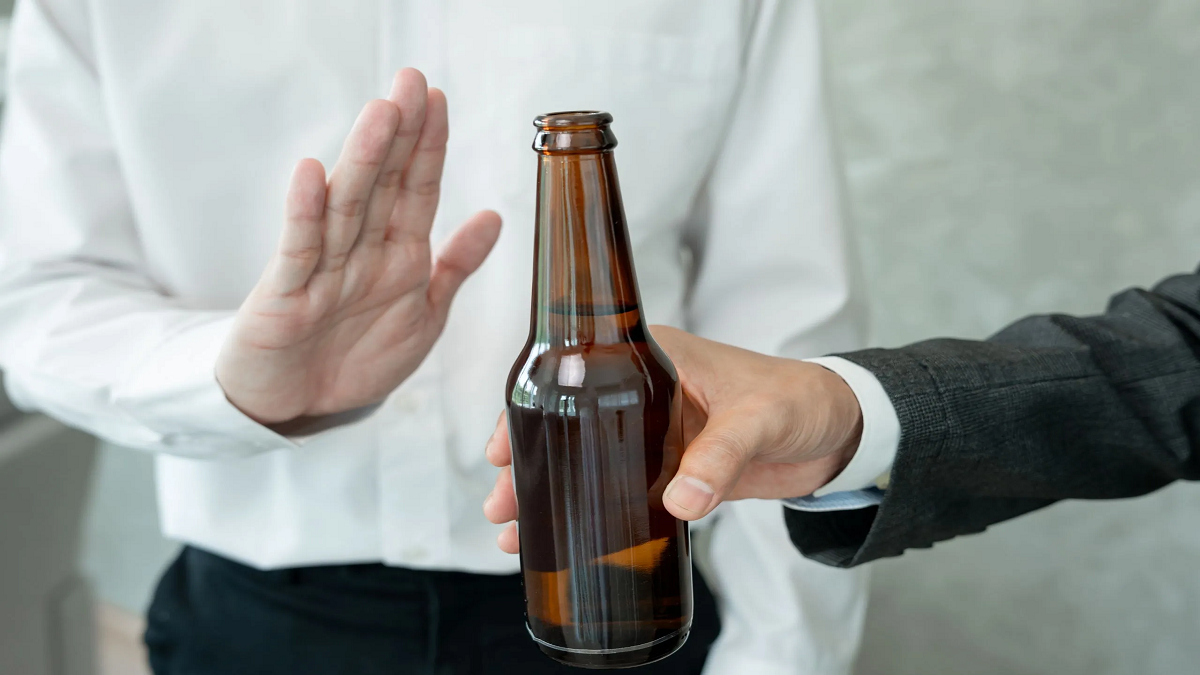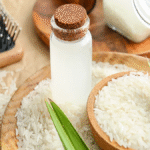Are you worried about how much alcohol you consume? Perhaps you think you drink too much or too often. Maybe you want ways to stop drinking alcohol. Always consult with your physician; they should be able to advise you on whether cutting down or abstaining is the best course of action. Alcohol should be avoided by those who are dependent on it or who suffer from other illnesses or mental health issues.
However, simply reducing alcohol consumption may significantly benefit many individuals. According to the National Institute on Alcohol Abuse and Alcoholism (NIAAA), the following actions might be beneficial if your physician advises you to reduce your alcohol consumption.
Tips To Stop Drinking Alcohol

1. Understand Your Motivation
One of the first and most crucial ways to stop drinking alcohol is understanding why you want to stop. Motivation acts as the anchor for all future actions, providing clarity and strength when temptations or difficulties arise. Start by asking yourself:
- What are the physical, emotional, or mental consequences of your drinking?
- What do you hope to gain from quitting alcohol—better health, improved relationships, financial stability, or mental clarity?
- Are you trying to break a pattern of dependence or avoid long-term health issues?
Writing down your reasons in a journal or note on your phone can serve as a daily reminder of your goals. Some people create vision boards or record personal video messages to motivate themselves during challenging times. Review and revise your motivations regularly. As you make progress, your reasons for staying sober may evolve, becoming even more personal and powerful.
2. Set Clear and Realistic Goals
Once you’ve identified your motivations, the next step is setting goals. Rather than vague resolutions like “I’ll stop drinking someday,” create clear, measurable, and realistic goals. Examples include:
- I will stop drinking for 30 days.
- I will reduce my alcohol intake to two days a week.
- I will attend a sobriety support group every week.
Goals should follow the SMART criteria: Specific, Measurable, Achievable, Relevant, and Time-bound. Break your main goal into smaller steps. For instance, if your long-term goal is to be alcohol-free for a year, begin with a week or a month. Small wins build confidence and momentum. Celebrate your achievements—no matter how small. Each sober day is a success.
3. Identify and Avoid Triggers
Triggers are people, places, emotions, or situations that increase the urge to drink. Recognizing and managing these triggers is one answer to how to stop drinking alcohol. Common triggers include:
- Social settings where alcohol is prevalent.
- Emotional states like stress, boredom, or loneliness.
- Certain times of day, such as after work or on weekends.
- Environmental cues like bars or alcohol advertisements.
Create a plan for each trigger. If you’re used to drinking at parties, consider attending alcohol-free gatherings or preparing a polite but firm response when offered a drink. Replace emotional triggers with healthy coping mechanisms—go for a walk, practice meditation, or call a friend.
Tip: Keep a “trigger journal” to track when you feel cravings. This will help you identify patterns and adjust your strategies accordingly.
4. Find Support and Build Accountability
Quitting alcohol is difficult to do in isolation. Surrounding yourself with people who support your journey increases your chances of success. Support can come from:
- Friends and family members who respect your decision.
- Therapists or counselors specializing in addiction.
- Online communities or forums.
Local or virtual support groups like Alcoholics Anonymous (AA), SMART Recovery, or Sober Grid Accountability partners can help keep you on track by checking in regularly and celebrating milestones with you. Sharing your goals with someone creates a sense of responsibility and encouragement. Be honest about your needs. If someone is unsupportive or triggers your cravings, it’s okay to set boundaries or limit contact.
5. Replace Alcohol with Healthier Alternatives
Many people drink to relax, socialize, or fill idle time. Replacing alcohol with healthier activities and beverages can ease the transition and create new habits and is one of the ways to stop drinking alcohol.
Non-alcoholic alternatives include:
- Sparkling water with lime.
- Herbal teas or infused waters.
- Mocktails with fresh ingredients.
- Alcohol-free beers or wines (though these may not be suitable for everyone).
Activity-based replacements:
- Exercise: Running, swimming, dancing, or yoga.
- Hobbies: Painting, gardening, writing, or cooking.
- Volunteering or joining clubs to meet new people.
- Evening rituals like reading, journaling, or watching a movie.
Keep your environment stocked with healthy options to avoid temptation.
6. Address the Underlying Emotional or Mental Issues
Alcohol often serves as a coping mechanism for deeper emotional or psychological issues such as anxiety, depression, trauma, or low self-esteem. Addressing these root causes is key to long-term sobriety. Consider therapy options like:
- Cognitive Behavioral Therapy (CBT).
- Dialectical Behavior Therapy (DBT).
- Trauma-informed therapy.
- Group therapy sessions.
Mental health apps and guided meditations can also offer tools to build emotional resilience. Medication may be appropriate for some individuals and should be discussed with a healthcare provider. Healing emotionally is not a sign of weakness—it’s a form of strength and self-love.
Read More: 9 Health Benefits of Kimchi
7. Create a Sober-Friendly Environment
Your environment has a significant answer to how to stop drinking alcohol. Designing a home and lifestyle that supports sobriety can make your goals easier to achieve. Suggestions include:
- Removing all alcohol from your home.
- Avoiding bars, clubs, or friends who drink excessively.
- Decorating your space with motivational quotes, plants, or calming items.
- Creating a schedule that includes regular exercise, meals, and rest.
Structure helps prevent relapse by reducing downtime and indecision. Keeping busy with positive routines can keep cravings at bay. Have a list of sober-friendly places to visit when you’re feeling tempted—parks, cafes, bookstores, etc.
8. Be Patient and Prepare for Setbacks
Sobriety is a journey filled with progress but also potential setbacks. Relapsing doesn’t mean you’ve failed—it simply means you need to reassess and adjust your approach. If you slip:
- Reflect on what led to the relapse without judging yourself.
- Revisit your goals and motivations.
- Reach out to your support network.
Start fresh immediately—don’t wait for the next “perfect day.” Recognize that setbacks can provide valuable insight. What matters most is your commitment to keep going, learning, and growing. Practice self-compassion. Talk to yourself the way you’d encourage a friend.
9. Embrace a New Identity and Lifestyle
To truly stop drinking, it helps to shift how you see yourself. Instead of saying “I’m trying to quit drinking,” say “I’m a person who doesn’t drink.” This mindset helps you internalize the change and commit to it fully. Explore the benefits of your new lifestyle:
- Improved mental clarity and mood.
- Better sleep and physical health.
- Increased savings and financial stability.
- More authentic relationships.
Many people find that quitting alcohol opens the door to new passions, purpose, and peace. Embrace this transformation and continue discovering what life looks like with full presence and intention. Celebrate milestones—30 days, 3 months, a year—and reflect on how far you’ve come.
Why You Should Stop Drinking Alcohol
Drinking alcohol may be socially accepted and even celebrated in many cultures, but the truth is that quitting alcohol can significantly improve nearly every aspect of your life. Whether you’re a casual drinker or someone struggling with dependency, choosing to stop drinking is a powerful step toward better health, clarity, and overall well-being.
One of the most immediate benefits of quitting alcohol is improved physical health. Alcohol takes a toll on your liver, heart, and immune system. By removing it from your lifestyle, you reduce the risk of liver disease, high blood pressure, and certain cancers. You’ll likely sleep better, have more energy, and notice clearer skin.
Mentally, quitting alcohol can boost your mood and sharpen your focus. Alcohol is a depressant and often worsens symptoms of anxiety and depression. When you stop drinking, your brain chemistry begins to balance, leading to more stable emotions and improved mental clarity.
Socially and financially, the benefits are just as powerful. Without alcohol, you’re more present in your relationships and better equipped to handle stress and conflict. Plus, the money saved from not buying alcohol can go toward more meaningful experiences or long-term goals.
Finally, quitting alcohol allows you to regain control. It empowers you to make conscious, intentional decisions about your life, free from the influence of a substance. Whether your goal is better health, personal growth, or peace of mind, stopping alcohol is a meaningful, life-enhancing choice worth making.
In short, the ways to stop drinking alcohol aren’t about restriction—it’s about liberation. It’s an opportunity to reclaim your time, energy, and potential. Your best self is waiting on the other side of sobriety.
FAQ
Q: How can you effectively prevent someone from drinking?
A: Make suggestions for things to do that don’t involve drinking. Direct them to useful tools and resources, like those at Rethinking Drinking. Promote going to a group meeting or getting therapy. Offer to take the individual to these meetings and back.
Q: How long does it take you to feel better after quitting drinking?
A: You could feel more energized and productive after abstaining from alcohol for a week. Enhanced mood: Alcohol may alter mood and behavior by influencing the neurotransmitters in the brain. After abstaining from alcohol for a week, you can feel happier and less melancholy or stressed.
Q: What effects does alcohol have on people?
A: Drinking alcohol raises your risk of heart attack and stroke by causing high blood pressure. Additionally, alcohol weakens the cardiac muscles, which may lead to heart failure and have an impact on the liver, brain, lungs, and other bodily systems.












Thank you for another wonderful post. The place else could anybody get that type of info in such an ideal method of writing? I have a presentation next week, and I am on the search for such information.
You’re very welcome! I’m glad the post helped.